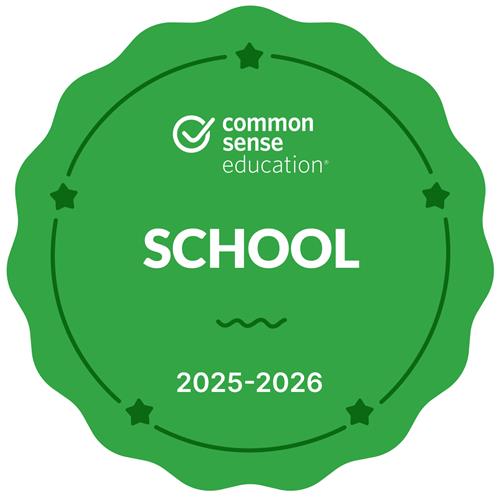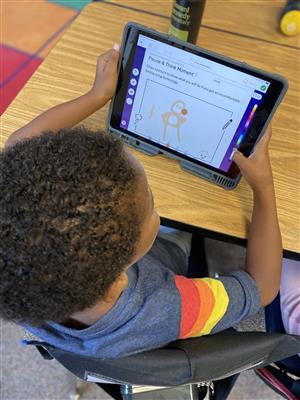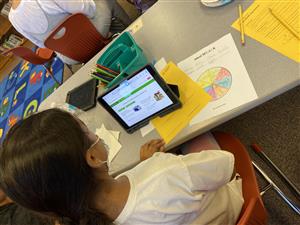Recognitions and Awards
Page Navigation
Digital Citizenship - School Recognition
-
Award Letter
Digital media and technology are evolving at a dizzying pace, both unlocking extraordinary opportunities and posing real risks for young people. Students are using the immense power of the internet and mobile technology to explore, connect, create, and learn in ways never before imagined, both in and out of the classroom. At the same time, tech use can bring up ethical challenges such as cyberbullying and misinformation and health issues related to media balance and social and emotional well-being.
 Kennedy sees these as teachable moments. We believe that digital citizenship skills have become essential for students in the 21st century, especially this school year. That's why we are committed to teaching our students how to be digital learners, leaders, and citizens.
Kennedy sees these as teachable moments. We believe that digital citizenship skills have become essential for students in the 21st century, especially this school year. That's why we are committed to teaching our students how to be digital learners, leaders, and citizens. Kennedy has just been approved as a Common Sense School, an honor that recognizes our efforts in teaching digital citizenship to young people and engaging the entire school community in this important discussion. The recognition acknowledges our school's commitment to helping students build skills that are essential for their well-being today—and for the opportunities they'll have tomorrow.
This honor is provided by Common Sense Education, part of a national nonprofit organization dedicated to improving the lives of kids and families by providing the trustworthy information, education, and independent voice they need to thrive in a world of media and technology.
We are one of the more than 80,000 schools across the country that use Common Sense Education's groundbreaking education resources. As a result, our students are better equipped to navigate the digital world and use devices for learning.
To learn more about Common Sense Education, visit www.commonsense.org/education.
-
Our Journey
The vision and dream of 1:1 devices at Kennedy started back in 2016. We were so excited to have these devices for workflow, access and creation. We focused on the teacher usage to access and engage in teaching and learning. We did not consider student usage to appropriately engage in teaching and learning. Just as we taught procedures and routines for behaviors, we needed to do the same for technology. Our digital citizenship journey started with our librarian teaching it. However, one adult in an isolated approach wasn’t having the impact we desired.

In 2018, The tech task force teacher committee and MTSS-B committee combined efforts to create a multi-prong approach. The librarian would teach digital footprint, privacy and security, the guidance counselor would teach media balance, classroom teachers would teach usage, engage and communication, while the specialist would teach the MTSS-B tech matrix. Leadership supported with cyberbullying and parent engagement.
 By 2019, we saw a decrease in digital drama, broken devices and referrals relating to misuse of technology. Students are now experiencing a consistent message around digital citizenship importance, skills and usage. They were also afforded a safe place to practice and develop these skills.
By 2019, we saw a decrease in digital drama, broken devices and referrals relating to misuse of technology. Students are now experiencing a consistent message around digital citizenship importance, skills and usage. They were also afforded a safe place to practice and develop these skills. One of the greatest benefits of our digital citizenship journey has been the transition from focusing on consumption of media to the creation and interaction to enhance and accelerate learning. Our students now had the skills and understanding of being a good digital citizen that they could create, collaborate and engage with each other successfully with technology. This opened a plethora of opportunities for students to learn in more innovative ways.

